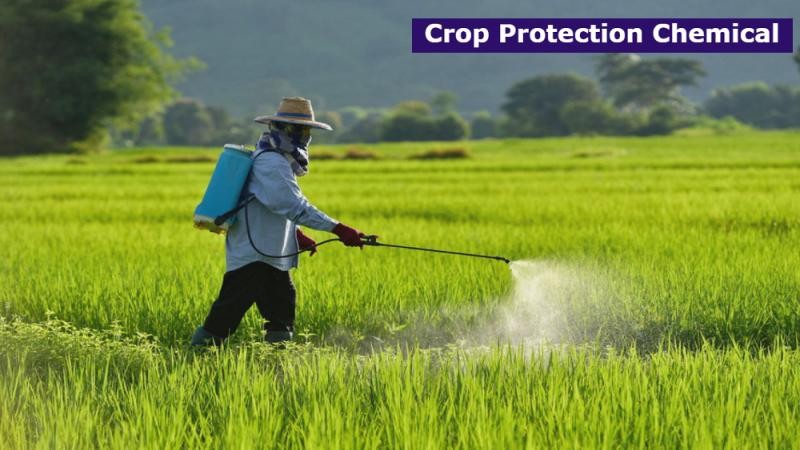
With the growing population, there is an increasing demand for food worldwide. To meet this rising demand, agriculture production needs to increase substantially. However, unfavorable climatic conditions and pest attacks pose serious threats to crop yields. This is where crop protection chemicals play a vital role in boosting agricultural production. These chemicals help farmers protect their crops from weeds, insects, diseases, and other pests. They allow farmers to maximize yields and ensure food security.
Importance of Crop Protection Chemicals
Crop protection chemicals are important for sustainable agriculture production. They help farmers deal with the following challenges:
Weed Management
Weeds compete with crops for water, nutrients, sunlight, and space. They can significantly reduce crop yields if not properly managed. Herbicides are crop protection chemicals that help control weeds. Pre-emergence herbicides prevent weed seeds from germinating while post-emergence herbicides control weed growth after crop emergence. Herbicides allow farmers to efficiently clear fields before planting and manage weeds throughout the crop growth cycle.
Pest and Disease Control
A variety of insects, fungi, bacteria, viruses, and other pathogens attack crops causing severe damage. Some common pests that threaten global food supplies include cotton bollworm, fall armyworm, European corn borer, Colorado potato beetle, late blight of potato, and rust diseases of wheat and soybean. Insecticides, fungicides, bactericides, and other types of pesticides play a crucial role in curbing pest attacks and diseases. They strengthen crop defense mechanisms and allow farmers to sustain high yields.
Boosting crop immunity
Certain crop protection chemicals, such as plant growth regulators and biopesticides, work by boosting the natural defense system of crops. They help crops develop resistance against biotic and abiotic stresses. As a result, crops can better withstand adverse climatic conditions and pest incidence. This makes crops more resilient and supports higher and consistent productivity.
Sustainability of Agriculture
By managing weeds, pests, and diseases, crop protection chemicals help protect investments made in agriculture. They allow optimum utilization of other farm inputs like seeds, fertilizers, irrigation, etc. This improves the sustainability of agriculture as farmers can adopt intensive cultivation practices without the fear of complete crop failure.
Safety and Regulations
At the same time, it is important that crop protection products are used judiciously and in a manner that minimizes risks to human health and the environment. Regulators worldwide have implemented stringent guidelines for the research, development, registration, and use of these chemicals. Farmers also receive extensive training on the safe and responsible use of crop protection tools. Modern agrochemicals are designed to be targeting and degrade quickly in the environment without causing persist harm. Still, integrated pest management should be promoted as the key approach for sustainable and safe agriculture.
Advances in Agrochemical Technology
Agrochemical industry is continuously working to develop novel, more effective, and environment-friendly solutions through research and innovation. Some key ongoing advancements include:
- Biopesticides: Products derived from natural materials like plants, bacteria, fungi, etc. are being researched for their pest control properties. Many have shown great promise as a non-toxic replacement for chemical pesticides.
- RNAi technology: Researchers are utilizing the techniques of RNA interference to develop next-gen Crop protection chemicals with extremely high specificity that selectively target pest genes without harming beneficial organisms.
- Precision application: Advanced application methods like low-drift nozzles, computer-controlled terrain-specific spraying, etc. ensure chemicals are used only where needed in extremely low quantities. This minimizes environmental impact.
- Gene-editing: CRISPR and other gene-editing tools allow developing crop varieties with inbuilt resilience against major diseases and insect pests. This could significantly reduce future agrochemical demand for certain crops.
Role of Governments and Industry
Both governments and private sector have an important role to play in ensuring the safe, secure and sustainable development of crop protection solutions:
- Governments must fund agricultural research with a focus on integrated pest management approaches, development of biopesticides, climate-resilient crops, and digital farming techniques. New breeding methods can also be promoted.
- Industries need to pursue open innovation models and partnerships with public researchers. They must prioritize the needs of smallholder farmers and make newer solutions accessible and affordable.
- Capacity building of farmers about judicious agrochemical use, safety practices, and alternative eco-friendly options should be strengthened by governments and crop protection manufacturers.
- International collaborations are vital for successful knowledge-sharing and ensuring food security globally in a changing climate. Strong coordination is needed between all stakeholders.
Get More Insights Here
https://captionssky.com/pistachio-the-wonder-nut-for-strong-global-growth/
https://www.ukwebwire.com/safeguarding-crops-with-precision-protection-chemicals/




























